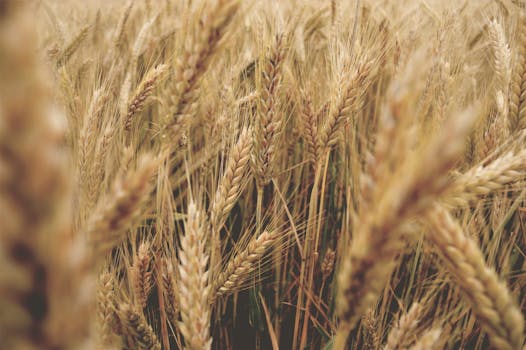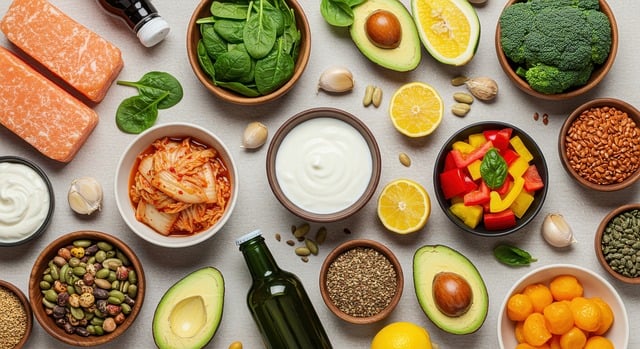Contact Us (720) 964-1335 or (901) 675-6125

When I was at a recent health fair, a woman came up to my table and quietly asked if I had any information to share on being “gluten-free” while on a weight loss journey. She told me she couldn’t eat gluten but wasn’t sure if it was an allergy, sensitivity, or just something her doctor suggested. Her confusion is not uncommon. Gluten has become one of the most talked-about, and misunderstood, parts of nutrition. Some women avoid it religiously, while others don’t give it a second thought. If you’ve ever wondered whether gluten is sabotaging your weight loss or your health after 40, you’re not alone.
What Is Gluten, Really?
Gluten is a natural protein found in grains like wheat, barley, and rye. It’s the component that gives bread its stretchy texture and helps baked goods hold their shape. For most people, gluten is completely harmless. But over the last two decades, it has been blamed for everything from bloating and fatigue to weight gain and brain fog. With so much conflicting information out there, it’s easy to feel uncertain about whether gluten should have a place on your plate.
Who Actually Needs to Avoid Gluten?
There are three main groups of people who should avoid gluten:
- Celiac disease: An autoimmune condition where gluten damages the small intestine. Even tiny amounts can trigger symptoms.
- Non-celiac gluten sensitivity: Some people experience bloating, brain fog, or fatigue when eating gluten, even without celiac.
- Wheat allergy: A true allergic reaction, which is different from celiac or sensitivity.
Outside of these groups, gluten doesn’t have to be avoided completely. Still, some women notice they feel better (less bloated, more energetic) when they cut back. That’s often because reducing gluten also means reducing highly processed foods like pastries, crackers, and breaded fried foods.
Gluten, Gut Health & Weight Loss
Your gut is at the center of so many processes that affect weight loss. Gluten itself isn’t inherently fattening, but if your body doesn’t tolerate it well, it may lead to inflammation and digestive distress. That inflammation can disrupt nutrient absorption and even affect hormones that control hunger and fullness.
For women over 40, this matters more than ever. Hormonal changes during perimenopause and menopause can magnify digestive issues. You might find that foods you tolerated easily in your 20s and 30s now leave you feeling bloated or tired. If gluten is one of those triggers, it can indirectly affect your metabolism and make weight loss feel more difficult.
Do You Need to Go Gluten-Free for Weight Loss?
This is where many women get tripped up. Going gluten-free doesn’t automatically mean you’ll lose weight. In fact, many gluten-free packaged foods are loaded with sugar, refined starches, and unhealthy fats to make up for the missing gluten. A gluten-free cookie is still a cookie.
If you suspect gluten is affecting you, the best strategy is to focus on whole, naturally gluten-free foods such as:
- Fruits and vegetables
- Lean proteins (fish, poultry, beans)
- Gluten-free whole grains like quinoa, brown rice, and oats (certified gluten-free if needed)
- Healthy fats like avocado, nuts, and olive oil
These foods not only help with weight management but also provide the nutrients your body needs to thrive during midlife.
Mindful Approach Instead of Fear-Based
Instead of jumping on the “gluten-free” bandwagon just because it’s trendy, consider a mindful approach. If you suspect gluten might be a problem, try an elimination period of 2–4 weeks and keep a food and symptom journal. Pay attention to how you feel physically, emotionally, and energetically. Then, reintroduce gluten and see what happens.
This process can give you clarity without forcing unnecessary restriction. Remember, health is not about cutting out as many foods as possible. It’s about understanding what works best for your unique body and lifestyle.
Coach’s Corner: Finding Food Freedom
At Ample Health & Wellness, I help women move away from fear and confusion around food. Gluten may or may not be an issue for you, but the bigger picture is learning how to build food freedom and strong foundations …what I call the “F” in my FRESH Start Framework. Together, we explore your unique food triggers, your mindset around eating, and the simple, sustainable strategies that actually help you reach your goals.
If you’ve been spinning your wheels with gluten-free products, fad diets, or conflicting advice, it may be time for a new approach. My coaching programs and workshops are designed to help you rebuild trust with your body and finally achieve the weight loss and wellness results you’ve been looking for.
Final Thoughts from Ample
Gluten isn’t the enemy, but it’s also not something to ignore if you notice symptoms when you eat it. The key is understanding whether gluten truly affects your body, or whether cutting it just feels like a shortcut. By listening to your body, focusing on whole foods, and keeping your eye on sustainable habits, you can create a weight loss journey that feels good, not restrictive.
And if you need support along the way? That’s what I’m here for. Let’s take the guesswork out of food, weight loss, and wellness …so you can thrive in this chapter of your life.

About the Author: Dr. Kisha Pickford, DNP, is a board-certified nurse practitioner and holistic nutrition weight loss coach at Ample Health & Wellness. She helps women over 40 achieve sustainable weight loss and whole-body wellness through holistic, evidence-based coaching.
📚References
- Fasano, A., & Catassi, C. (2012). Clinical practice: Celiac disease. The New England Journal of Medicine, 367(25), 2419–2426.
- Molina-Infante, J., & Carroccio, A. (2017). Suspected Nonceliac Gluten Sensitivity: The New Frontier of Gluten Related Disorders. Nutrients, 9(5), 120.
- Lebwohl, B., Sanders, D. S., & Green, P. H. R. (2018). Coeliac disease. The Lancet, 391(10115), 70–81.
